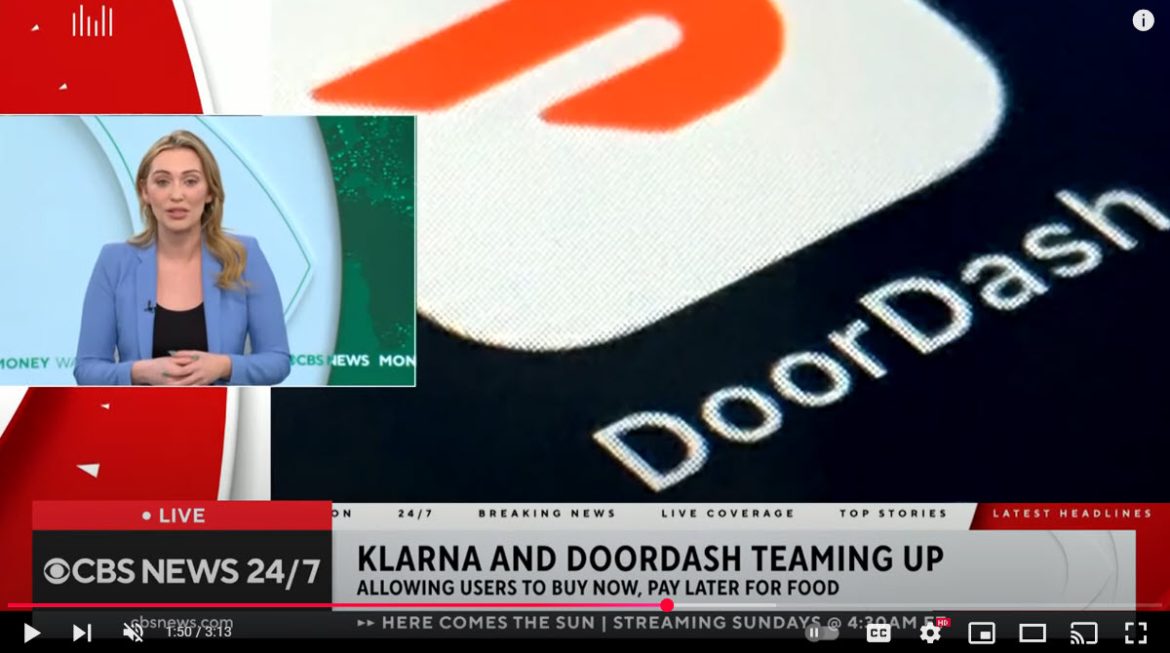DoorDash is facing growing backlash from financial experts and consumer advocates after launching a controversial new feature that allows customers to finance their fast food purchases through installment payment plans. Critics argue the move preys on financially vulnerable users at a time when national debt levels are surging, and household delinquencies are reaching alarming highs.
The new option, which quietly rolled out to select users earlier this year, lets customers break up the cost of their orders — often just a few dollars — into multiple payments using third-party “Buy Now, Pay Later” (BNPL) platforms like Klarna and Afterpay. While the company frames it as a convenience feature, financial professionals are warning that the ability to pay off a $14 burrito in installments may signal a disturbing shift in how consumers are managing their money.
Texas financial strategist Bill Dendy doesn’t mince words in his critique: “If you have to finance your burrito, it’s time to reevaluate your spending habits,” he says. Dendy warns that such services may be fueling irresponsible consumption habits, especially among individuals with already strained credit or limited financial literacy. “It’s a trap disguised as a convenience,” he adds. “Short-term gratification at the cost of long-term financial health.”
This latest development comes as the Federal Reserve Bank of New York reports rising household debt, with total U.S. household debt reaching over $17.5 trillion in its most recent quarterly report. Credit card debt has surpassed $1.1 trillion, and a growing number of consumers are falling behind on payments. Particularly alarming is the increase in car buyers who are now 60 days or more delinquent on their auto loans — the highest rate in 14 years.
Consumer watchdog groups are also expressing concern over the normalization of microfinancing everyday purchases. “We’re not just talking about spreading out payments for a couch or laptop anymore,” says a representative from the National Consumer Law Center. “Now it’s tacos and fries — this is a new frontier in consumer debt.”
DoorDash, one of the nation’s largest food delivery platforms, has yet to issue a detailed statement in response to the criticism. However, company insiders claim the option is meant to give users “flexibility,” especially during times of high inflation and tight personal budgets. Internal surveys from delivery app providers suggest that users who finance their orders tend to order more frequently and in larger amounts — a potential boost for DoorDash’s bottom line, but a red flag for budget-conscious experts.
BNPL services, already booming in the retail sector, are now increasingly being integrated into food delivery apps. Unlike traditional credit cards, many BNPL platforms do not charge interest if payments are made on time, but late fees and the risk of overdraft charges remain — particularly dangerous for those living paycheck to paycheck.
Back in 2021 and 2022, consumer use of BNPL surged as Americans tried to stretch their dollars amid the pandemic and rising costs. But with inflation now stabilizing and wages not keeping up, experts fear that consumers may be relying too heavily on these services to manage basic living expenses.
Economists point to a broader shift in how Americans view debt and consumption. “There used to be a sense that credit was something you used for emergencies or big-ticket items,” says Dendy. “Now, it’s become normalized to the point that people are financing cheeseburgers. That’s not progress — it’s a warning sign.”
The controversy also comes at a time when federal regulators are increasing scrutiny of BNPL services. The Consumer Financial Protection Bureau (CFPB) has raised concerns about how these services report data, assess creditworthiness, and protect consumers. A full report from the CFPB is expected later this year, potentially leading to new regulations that could impact both BNPL platforms and the companies like DoorDash that partner with them.
For now, experts recommend that consumers resist the temptation to finance minor purchases and instead focus on building emergency funds and reducing dependency on short-term loans. As Dendy bluntly puts it: “If you’re paying off lunch next Friday, you’re already living beyond your means today.”
Source Links:
- Full: Tulsi Gabbard, Kash Patel testify on Worldwide Threats
- Hegseth slams journalist, defends efforts against Houthis amid bombshell leaks investigation
- Exchange between Tulsi Gabbard and Sen. Warner turns heated amid leaked war plans scandal



